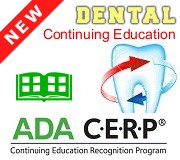USA, March 27, 2024 - Good dental care is essential during pregnancy to protect both you and your baby. When you're expecting, your immune system takes a nosedive so that it doesn't attack the baby, and that leaves your teeth and gums open to infection, which can actually cause preterm labor.
Pregnancy also leaves you susceptible to heartburn and bleeding gums, which can make your whole mouth prone to icky complications.
To ensure both your safety and the safety of your little bean, follow these guidelines for good dental care during pregnancy.
Do: see your dentist.
It can be a little scary to see your dentist during pregnancy because of the fear of exposure to fluoride, radiation, or mercury, but trust that your dentist and doctor know what they're doing.
A good cleaning and exam during pregnancy will not hurt your baby, but avoiding dental care might.
Schedule at least one dentist appointment during pregnancy, ideally in the second trimester, when the risks to the baby are minimal and when you're small enough to lie comfortably on your back.
Don't: worry about the procedures.
Dentists are medical experts and are trained to know how to deal with pregnant women, including using safe medications, cleaning treatments, and X-rays. Your dentist can talk to you about the benefits and risks of every procedure or medicine and, as long as you tell him that you're pregnant, the risks to you and the baby are minimal.
For example, the amount of fluoride used in cleaning is considered safe during pregnancy, and lidocaine (the most common drug to numb your mouth for dental work) does not cross the placenta.
Do: tell the dentist you're pregnant and ask for precautions.
Your dentist can't protect your baby if she doesn't know it's there.
Even if you think you're obviously pregnant or that it's on your paper work, make sure you mention it individually to your dentist as well as any nurses or dental hygienists who see you.
Ask for special precautions, such as additional lead shields if you're getting X-rays and mercury-free filling material instead of the classic amalgam.
Your dentist will also want to use the safest and lowest-dose medications while you've got a bun in the oven.
Don't: avoid medically necessary procedures.
Talk to your dentist about whether or not each procedure can be postponed. Something simple like an X-ray or filling might be able to wait until after your baby arrives (especially if your due date is drawing close) but severe decay or gum disease needs to be treated right away.
Don't let your fear scare you out of something that will protect you and your little one. Talk to the dentist about whether these things can wait or if they need to be done now.
Do: get in touch with your midwife or OB/GYN.
If your dentist discovers something that could impact your pregnancy, make sure you let your prenatal health care provider know immediately.
For example, if you have a severe infection or need a complicated surgery that will require you to be sedated, you'll need to work with your dentist and obstetrician to find out what the safest treatment routes are to protect you and the baby.
Your dentist might also discover something about your overall health, like signs of malnutrition or stomach acid damage to your teeth, that your doctor will want to know about.
You might choose to ask for your dentist to fax your records to the obstetrician.
Good dental care during pregnancy can mean the difference between a healthy pregnancy and a miserable one, so make an appointment soon to see your dentist if you're expecting a baby, especially if you've been having trouble with your teeth or gums.
Cautious and careful treatment can help to protect you and your baby.
See the American Pregnancy Association or talk to your own midwife or obstetrician for more information about dental care in pregnancy.





 Guidelines for Good Dental Care in Pregnancy
Guidelines for Good Dental Care in Pregnancy



